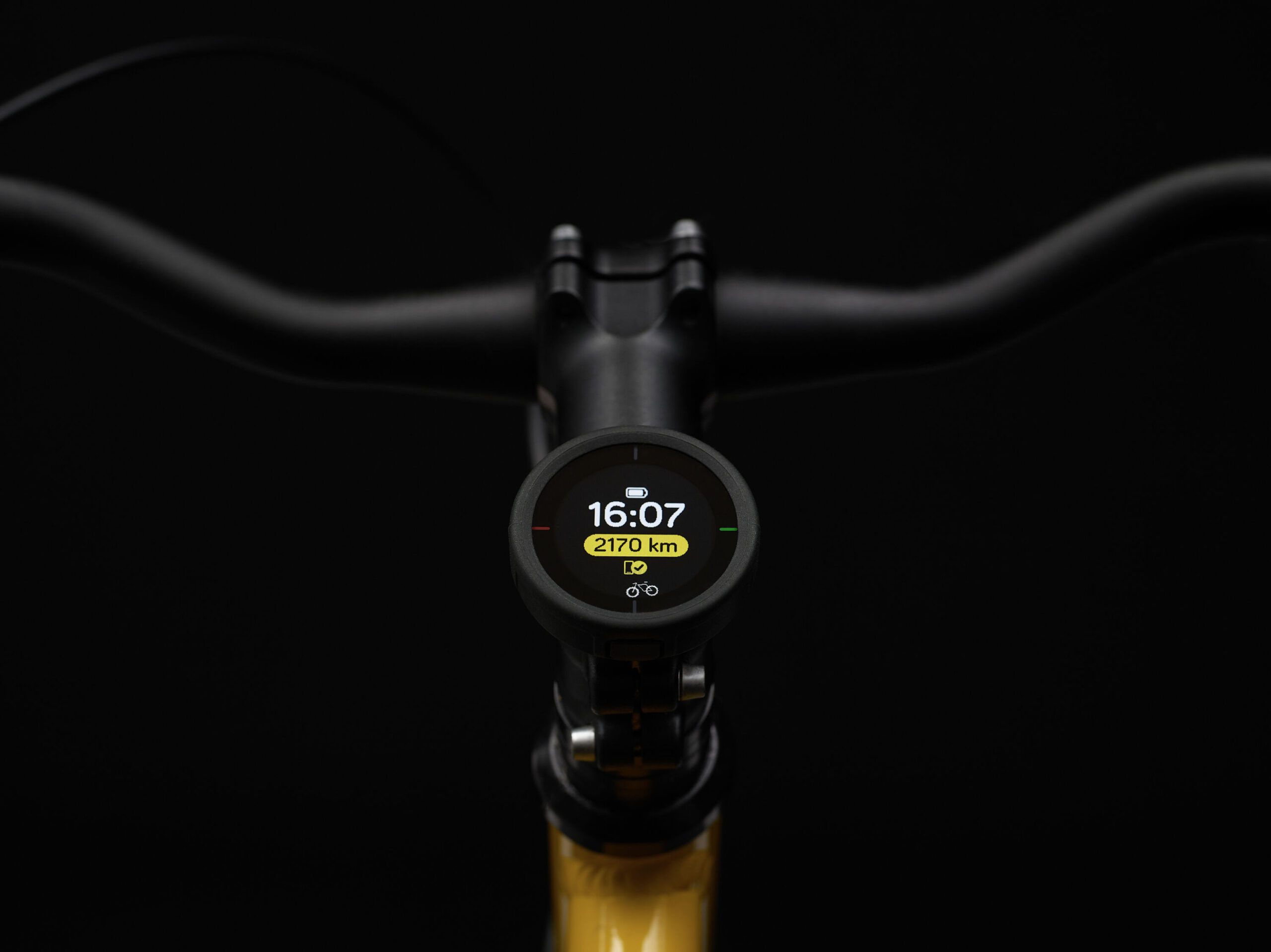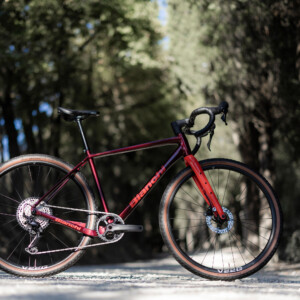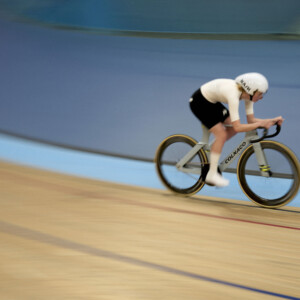Navigation is often the most stressful part of riding in urban settings or on unfamiliar roads, so a device that keeps it minimal, intuitive, and reliable gets my attention. The Beeline Velo 2 isn’t aiming to compete with full-blown GPS computers; instead, it slices away everything extra and keeps only what matters: directions, distance, time, and a clean interface to keep your focus on the ride.
First impressions
The first thing that strikes you out of the box is the size of the Velo 2 – it’s tiny. With a diameter of just 46.4mm and weighing roughly 25 grams (about the same as a single ‘AA’ battery), this unit screams minimalism. Its round IPS LCD display is surprisingly clear and easy to read, even offering auto-brightness that adapts based on ambient light. The “RockerTop” interface, which is essentially four directional press zones around the rim, gives a satisfying tactile click that feels more dependable than a touchscreen of this size would.
Mounting is via a proprietary twist-lock style mount, which is incompatible with standard Garmin mounts. This was a tad frustrating as someone who relies on Garmin mounts for everything from my computer to my lights and radar. Beeline does offer a mount adapter insert that will convert your out-front mount to fit the Velo 2, but this makes swapping head units clunky and time-consuming.
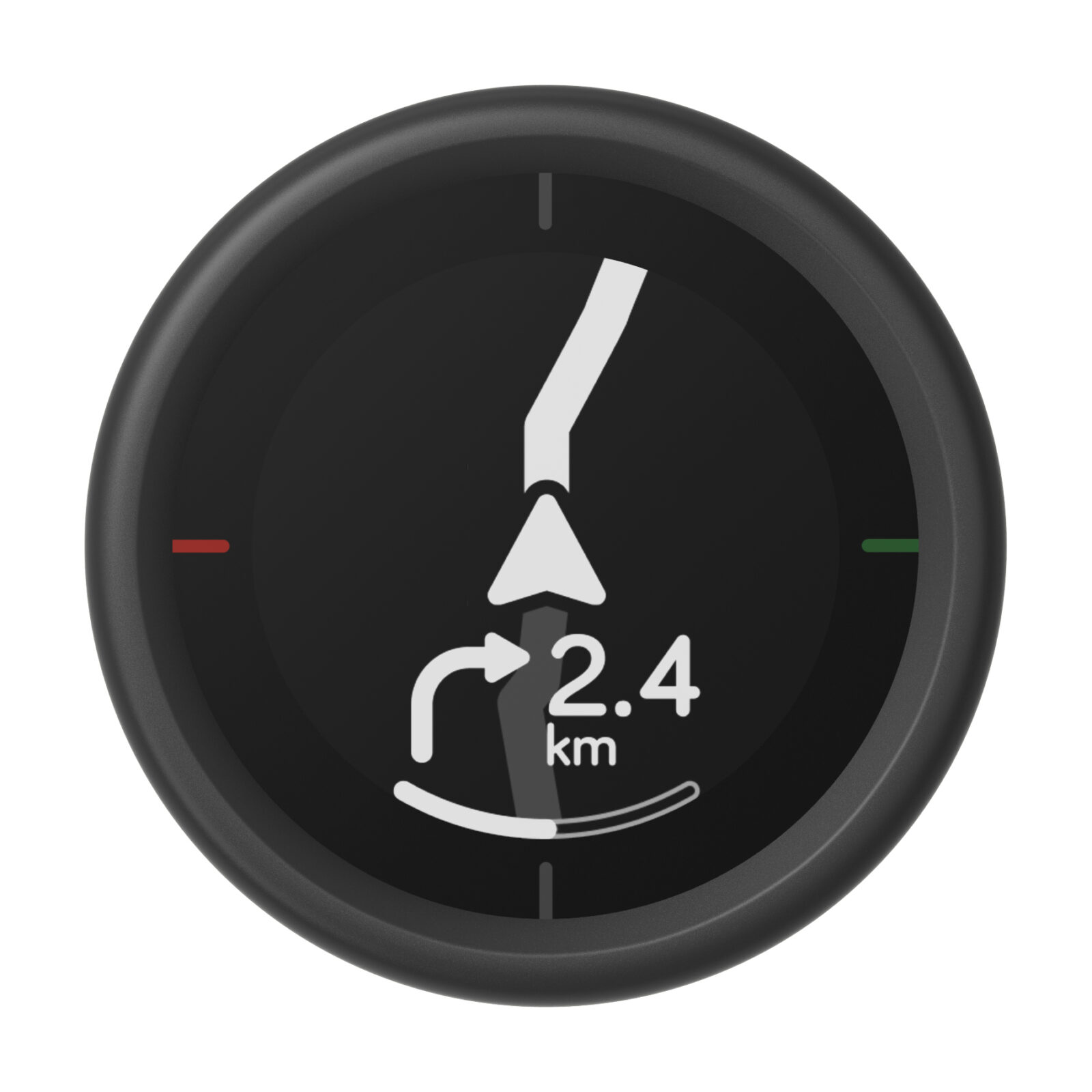
Navigation & daily use
As someone who likes seeing at least a few things on my screen, I was sceptical about how much I would enjoy the Velo 2.
Here’s where Velo 2’s philosophy shows: it doesn’t show a full map onscreen. Instead, you plan your route using the companion app (or import GPX / Strava routes), and the device gives you turn prompts or a compass-style directional arrow during the ride. The interface is simple and intuitive – you rarely need to dive deep into menus. I appreciated how little attention I had to give the screen; the arrow or prompt is large enough to glance down and get your direction, but doesn’t distract.
That said, the minimal approach has trade-offs. Because it heavily relies on the smartphone for route logic and mapping, it may have limitations in remote areas or off-road stretches. Rerouting mid-ride is sometimes imperfect, and it occasionally struggles with complex intersections or sudden deviations.
Performance and battery
In typical urban or road-ride use, its battery life (around 11 hours) is respectable and comfortably handles a full day’s ride. There are claims that night/standby mode extends life further. The charging is via USB-C and fairly quick – you can get a decent top-up in a short time. I found that in regular commuting/city rides, it rarely felt like the unit was the limiting factor; more the phone’s battery or the comfort of the route.
The display is legible even in bright daylight, and auto-brightness helps avoid overexposure. In heavy rain, it maintained function without visible glitches.
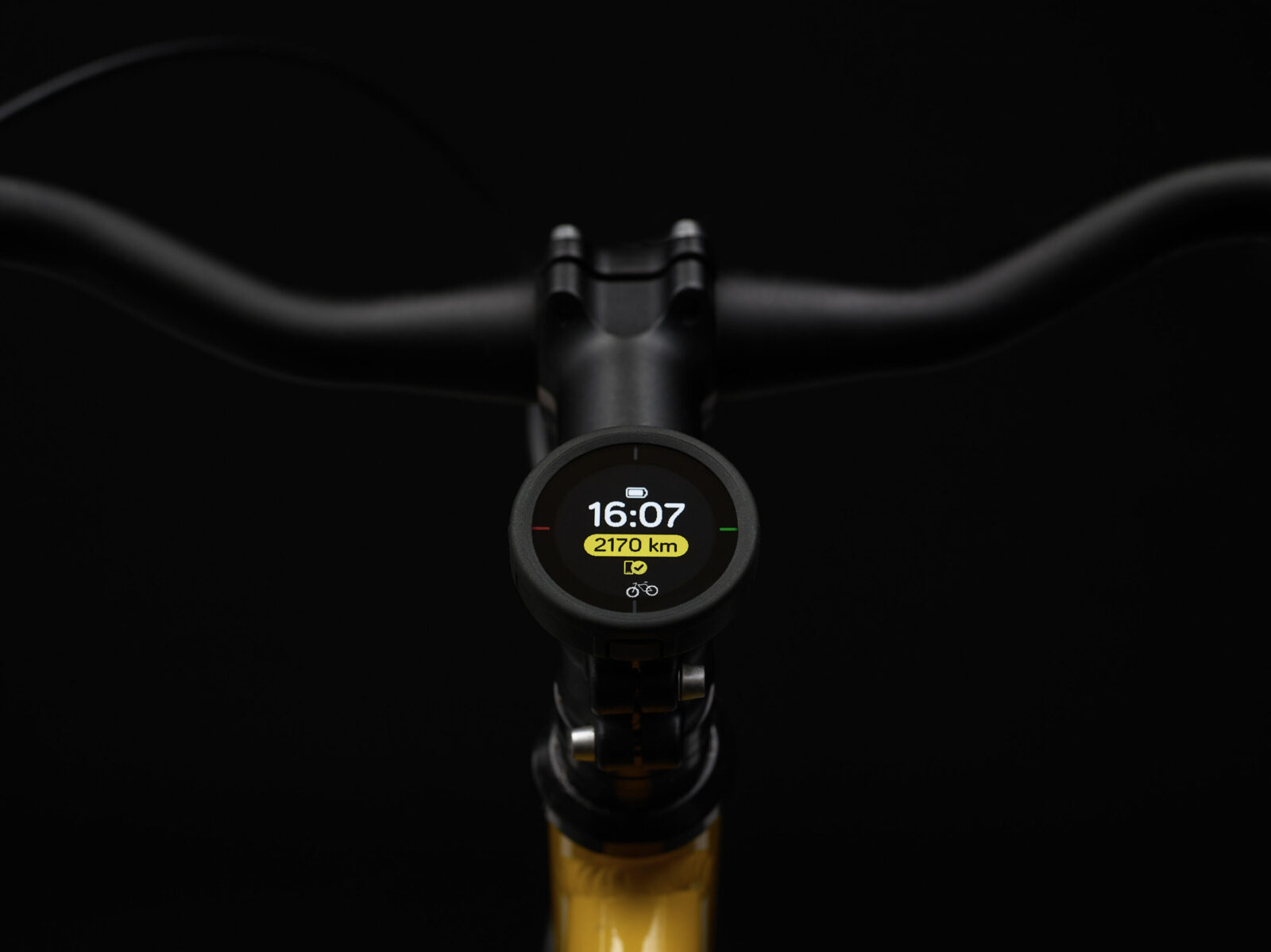
Pros & cons
What works well
- Extremely simple and clean navigation interface – no overcomplicated menus
- The RockerTop button interface is reliable even with gloves or rain
- Lightweight & compact – hardly intrusive on the bars
- Strong pairing with app route tools (GPX, Strava, import)
- Good battery life for its class
- Crowd-sourced road rating (you can rate segments “good” or “bad”) helps route logic over time
Limitations
- No support for sensors (power, heart rate, cadence)
- Navigation reliant on phone for mapping/logic
- Rerouting is imperfect in complex junctions or unfamiliar segments
- Mount system is proprietary (not Garmin standard)
- Doesn’t show elevation profiles or deeper route analytics on the device
Verdict
If your riding is primarily urban, commuting, or you want a “sweet spot” device that doesn’t demand full attention or maintenance, the Beeline Velo 2 is an excellent pick. It delivers navigation in a minimal, distraction-free form, keeping you informed without cluttering your screen with unnecessary data. The Velo 2 makes getting from A to B clear and straightforward. While it’s not for the data-obsessed rider, it certainly suits those who want less tech and more ride, all while having confidence in the directions they are taking.
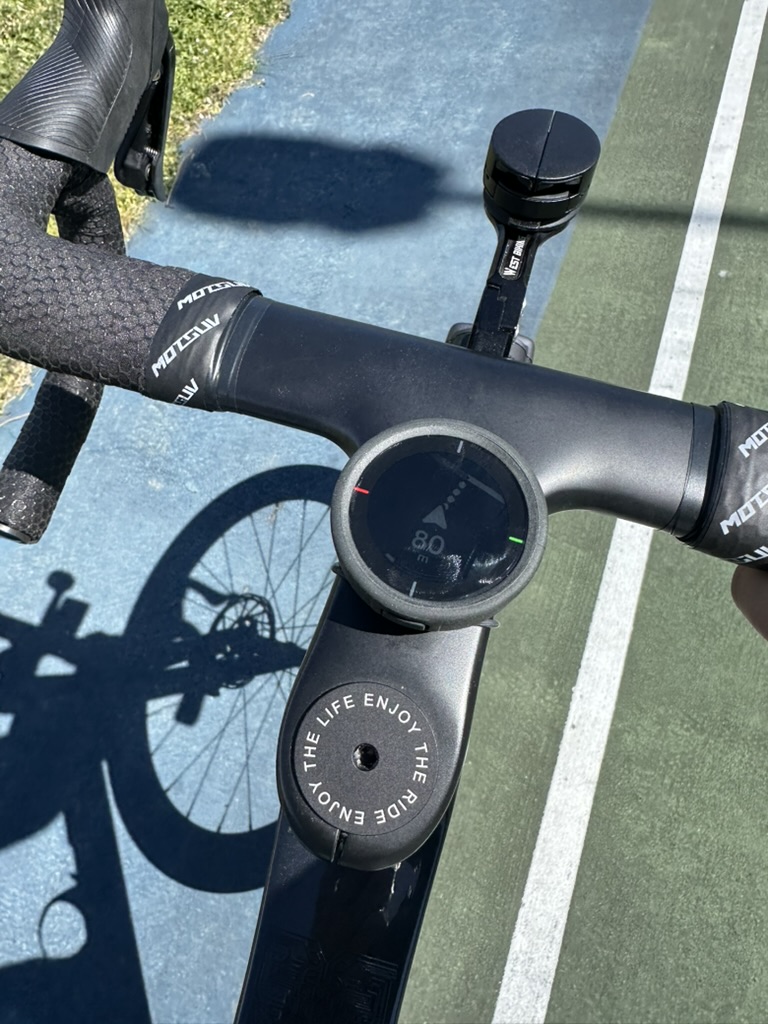
Specifications
Display: 1.28″ (3.25cm) circular IPS LCD (240 × 240 px)
Size: 46.4 mm diameter × 17.3 mm depth
Weight: ~25 g
Battery: 400 mAh lithium polymer; ~11 h use; ~20 h (low power / standby)
Charging: USB-C waterproof
Waterproof / Resistance: Weather-sealed, water & dust resistant
Connectivity: Bluetooth 4.0 LE
Sensors: Accelerometer, gyroscope, magnetometer, ambient light sensor
Interface: 4 x RockerTop buttons
Mount: Proprietary twist mount with silicone O-rings (bar/stem)
Route modes: Compass mode or turn-by-turn mode via Beeline app / GPX import
App / Sync: Beeline app for route planning, GPX import, Strava sync
Price: AUD $209

Harry Kooros
Harry Kooros - As a former Advertising Manager of Bicycling Australia, Harry is a keen roadie who has stepped up as a contributor to share his riding and product experiences.
